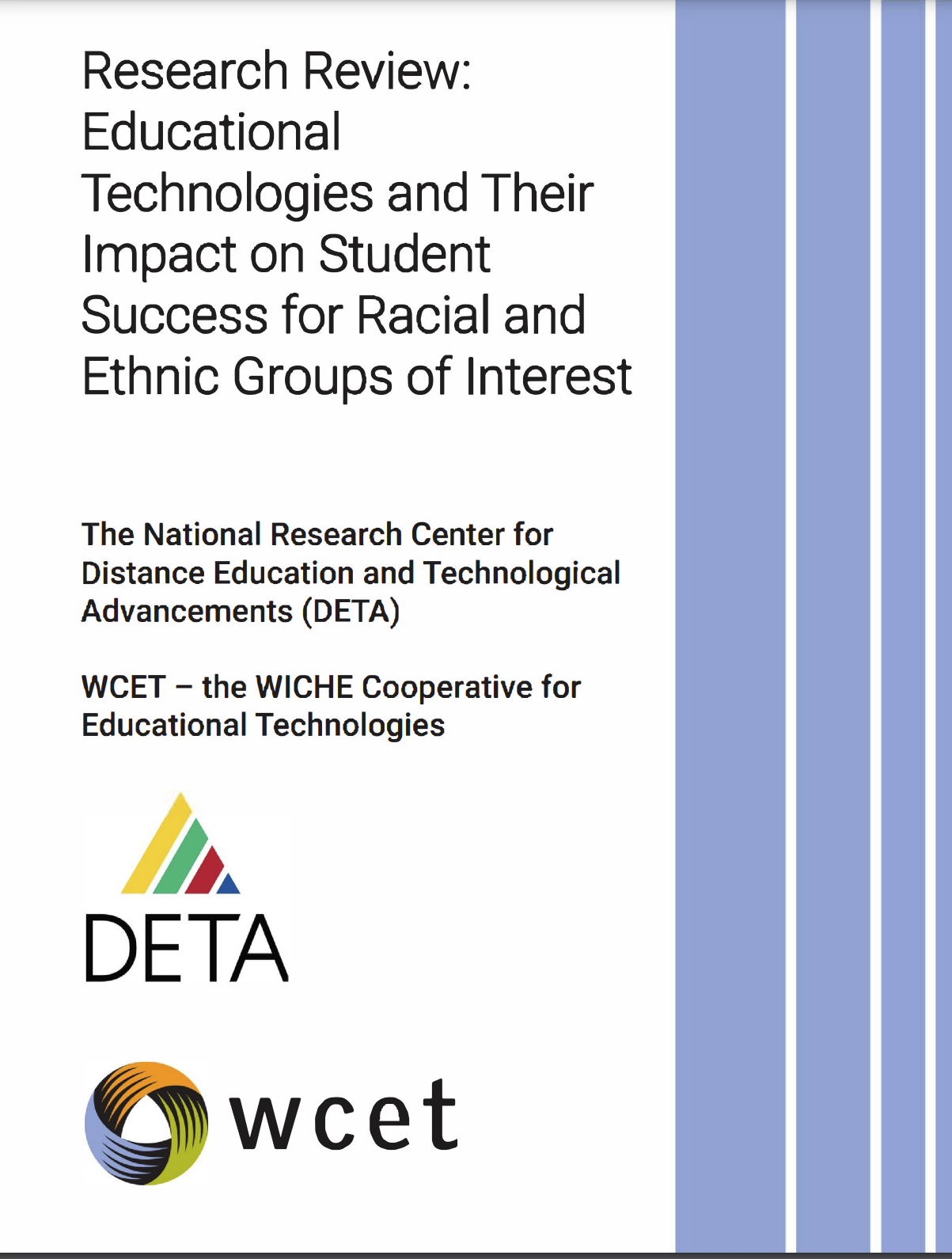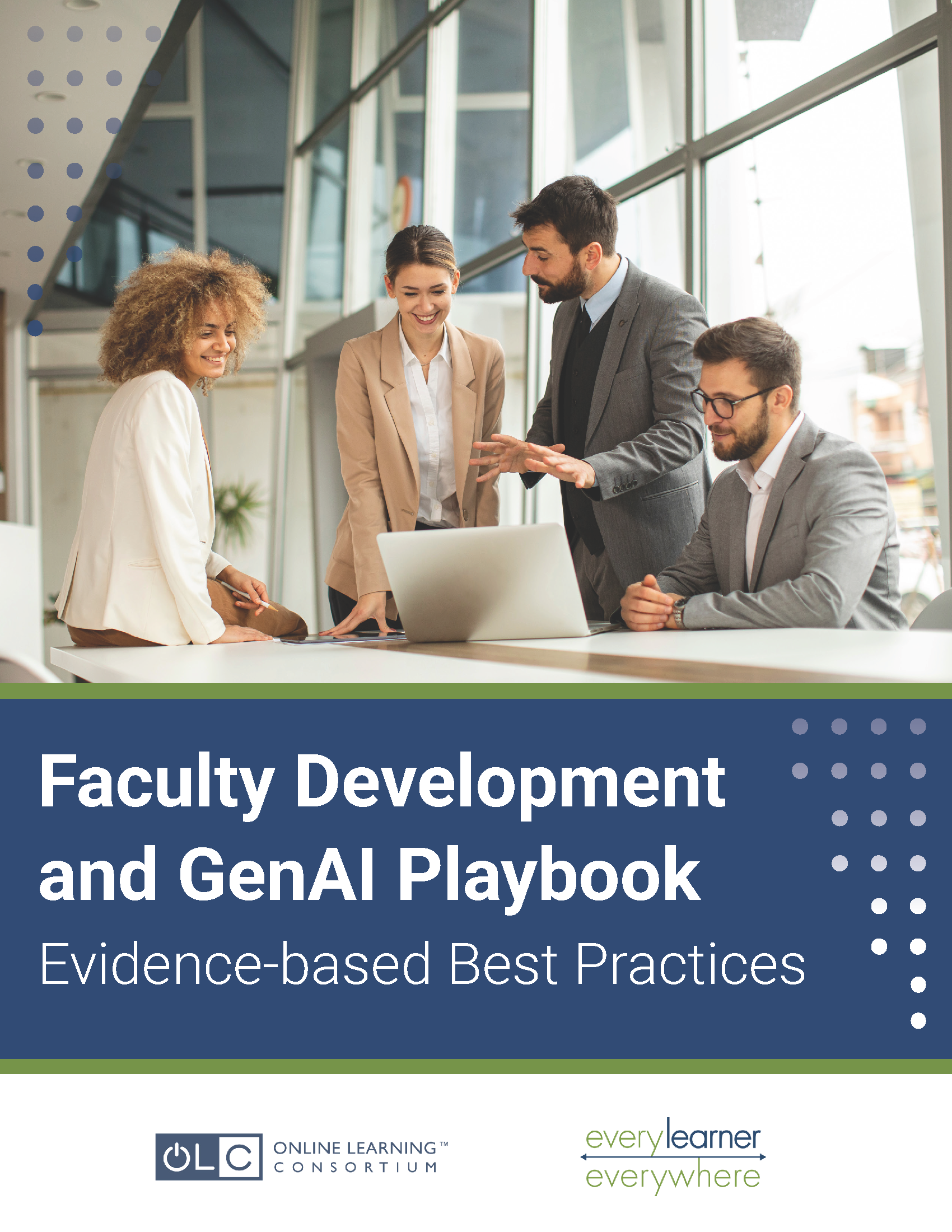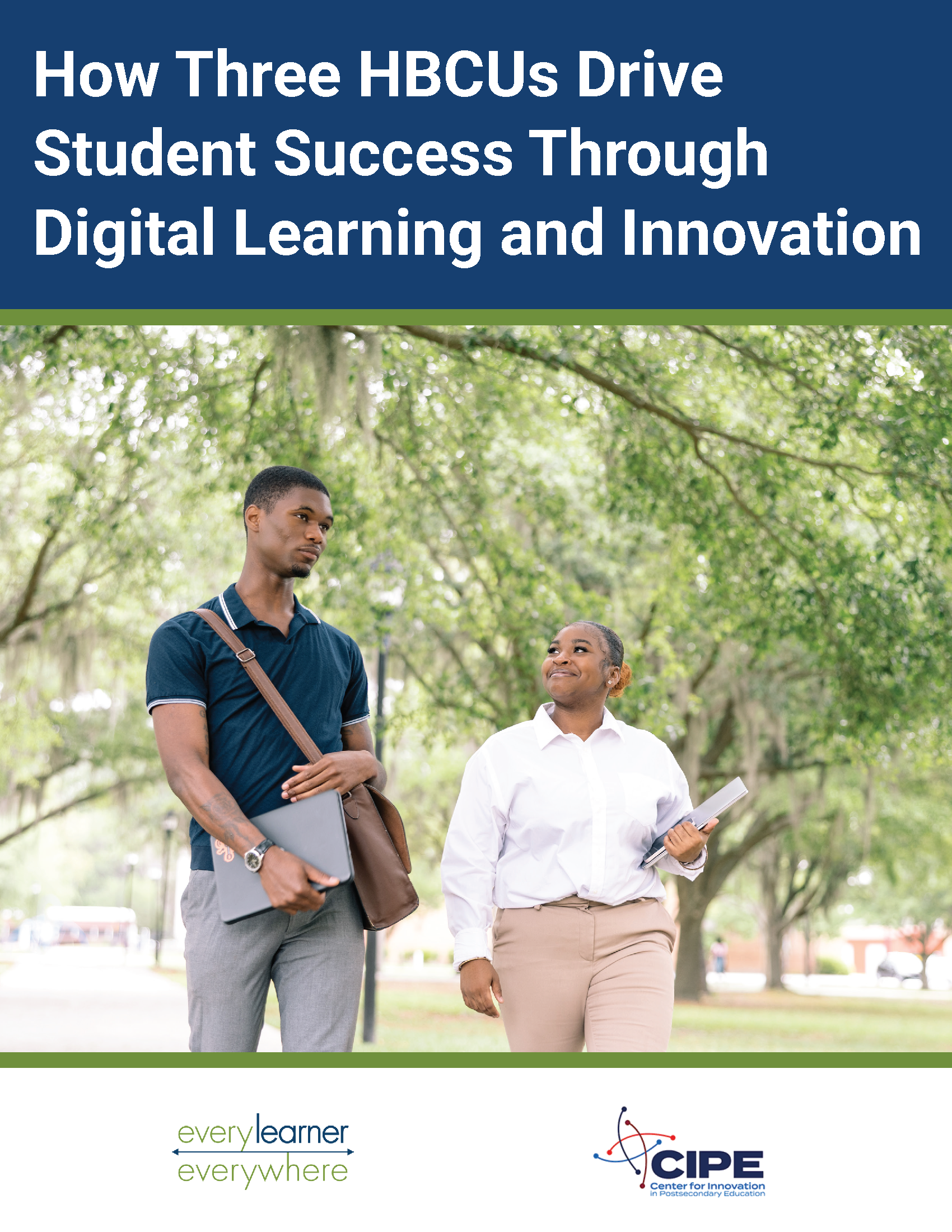The purpose of the review is to identify institutional, instructional, and learning practices mediated by educational technologies that positively influence the success of certain racial and ethnic groups of American students, including students who identify as Black, African American, Hispanic, Latinx, Latino or Latina, American Indian, Alaskan Native, Indigenous American, Native Hawaiian, or Pacific Islander. The rationale for the review is to better understand what recent and relevant research-based practices in the educational technology field can be replicated and scaled across postsecondary education in the United States (U.S.) to create equitable and inclusive learning experiences. The objective of this research is the identification of practices and/or interventions that are positively influencing student outcomes (e.g., access, learning, grades, course completion, satisfaction, persistence, and others) with educational technologies for the population of interest to encourage implementation across the WCET community.
Download Research ReviewRecommended citation:
Joosten, T., Harness L., Poulin, R., & Davis, V. (2021, May 17) Research Review: Educational Technologies and Their Impact on Student Success for Racial and Ethnic Groups of Interest, WCET. https://wcet.wiche.edu/resources/research-review-educational-technologies-and-their-impact-on-student-success-for-racial-and-ethnic-groups-of-interest/
Other Related Resources
January 2026
This report offers a student-centered examination of generative AI in higher education—not a guide or endorsement, but a record of genuine student inquiry into AI’s potential and limitations. Students are already using AI, regardless of institutional policies. This student research helps faculty understand not just what tools students are using, but how they’re thinking about AI’s role in their education.






